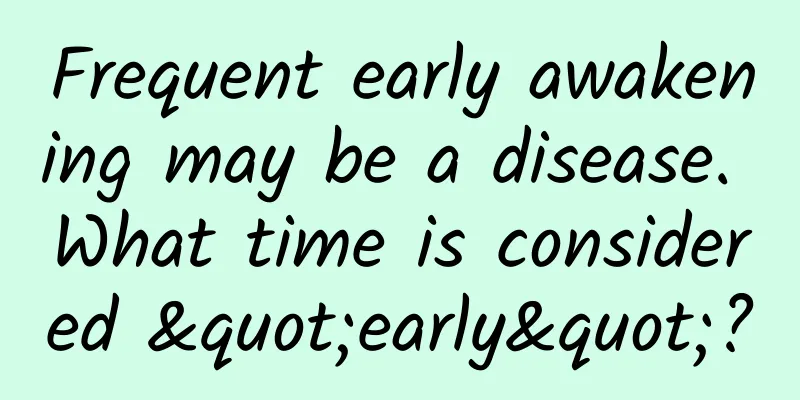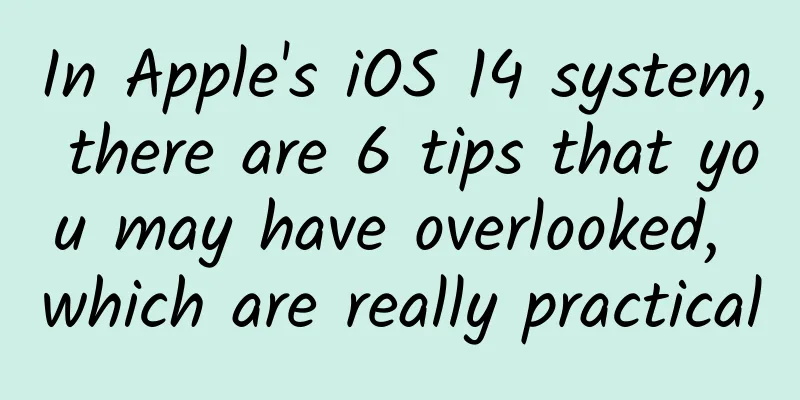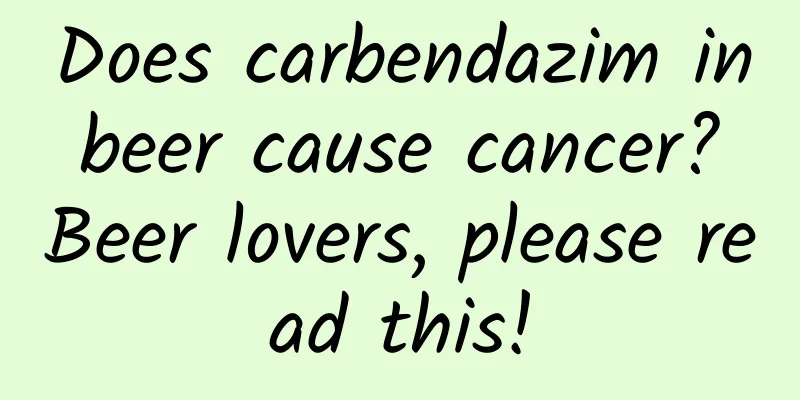Frequent early awakening may be a disease. What time is considered "early"?

|
Have you ever had this experience: you woke up before the alarm went off, looked at the clock and it was still early, but after waking up you could not fall asleep again Due to life pressure, environmental factors and other factors, some people have poor sleep. They often wake up in the middle of the night. After waking up, they stare at the ceiling and cannot fall asleep. After waking up early, I couldn't fall asleep. My eyes were bloodshot, I felt dizzy, my heart was pounding, and my chest was stuffy. I felt light-headed, as if I was floating in the clouds... Today we will explore: When is waking up early? Is frequent early waking a disease? How to sleep through the night? What time is considered early? Early awakening is a common symptom of insomnia . It is characterized by waking up suddenly after sleeping for a while, entering a very awake state and finding it difficult to fall asleep again. So, what time is considered early awakening? Zhang Haisheng, deputy chief physician of the clinical psychology department of Hangzhou First People's Hospital, said that in clinical medicine, waking up between 2 and 4 a.m. and not being able to fall asleep again is called early awakening . People who wake up early usually do not get enough sleep , feel tired the next day, have difficulty concentrating, and are inefficient at work. Long-term early awakening may also cause some physical discomfort , such as palpitations, chest tightness, diarrhea, etc. Is waking up early often a disease? As people age , the body's secretion of melatonin and growth hormone will decrease, which will to a certain extent lead to a decline in the quality of deep sleep and light sleep, resulting in frequent early awakenings . 1. Depression and anxiety <br /> One characteristic of insomnia caused by depression is early awakening. At least one hour earlier than usual, and more often two hours or more earlier. When the content of one of the neurochemical transmitters, serotonin , decreases in a certain area of the brain, people may become depressed. Serotonin has a similar effect on sleep. If the content is insufficient, sleep time will become shorter, which manifests as early awakening. 2. Breathing problems <br /> Seasonal allergies and colds can cause people toss and turn at night to a certain extent. Factors such as deviated septum, nasal polyps, and enlarged tonsils can also narrow the airway , thus affecting people's sleep quality. 3. Thyroid problems <br /> An overactive thyroid gland causes a faster heartbeat and a surge in adrenaline, which can lead to insomnia and anxiety ; while hypothyroidism increases the likelihood of sleep apnea by 35% . 4. Vitamin D deficiency 5. Watching your phone before bed <br /> The “routine” of browsing social media and watching TV shows before bed is meant to relax and fall asleep faster. However, Life Times published an article saying that the blue light from mobile phone screens will hinder the body's production of melatonin to a certain extent. The reduction in melatonin secretion may lead to the inability to fall asleep, affect the quality of sleep, and increase the probability of waking up early . 6. Drinking before bed <br /> In the first few hours after falling asleep, the body metabolizes alcohol, affecting the rapid eye movement phase of sleep. This will make people restless in the second half of the night, greatly reducing the quality of sleep and easily causing early awakening. Sleep is a very important physiological activity for human beings. People restore their state through sleep so as to cope with their daily work and life. Healthy China once published an article stating that one-third of a person's life is spent sleeping . In order to have a better sleep, many people have tried various methods, but it is still difficult to improve their sleep quality and they still often suffer from insomnia. Xiao Ke has compiled the following sleep misunderstandings. Come and see if you have fallen into any of them! 1. Prepare in Advance 2. Drinking alcohol to help you sleep <br /> After drinking alcohol, people may have the illusion of falling asleep , but it is usually a shallow sleep . After falling asleep after drinking, alcohol can easily suppress breathing, leading to restless sleep, disrupting sleep structure, and making people feel light-headed when they wake up the next day. 3. " Warm-up " before bed Some people read before going to bed, but they should also choose the right books before going to bed. If you read a novel with a tense plot before going to bed, it will make your brain more excited. 4. " Excessive " pursuit of sleep time <br /> Everyone's sleep time is different, and occasional reduction in sleep time will not have a big impact. Don't be afraid that not getting enough sleep will affect your life, and mental stress will also affect sleep . |
<<: Mission accomplished! Goodbye, Tianzhou-5!
Recommend
Be the best or nothing: Touchscreen CEO Chen Haozhi's ambition
On the morning of October 28, the 9th Cocos Devel...
The new version of WeChat is here! Finally updated with practical functions, it is recommended to upgrade and use
WeChat has been updated to official version 8.0.1...
How long can the iPhone 6 slap the mobile phone futures model in the face last?
Smartphones are no longer a scarce product. The c...
Can we track a satellite that is out of control? 30 years ago today, Chinese scientists did it!
Satellite launches are not uncommon, but sometime...
Why are potato chips so delicious? It has something to do with how they look!
It's the autumn outing season again. If you w...
This is the entire process of a product from establishment to acquiring users!
In the early stages of entrepreneurship , from bu...
Tesla's Berlin factory stopped construction due to arrears of water bills, and the person in charge resigned due to long construction delays
According to foreign media reports, an informed s...
Two important channels for APP to attract new users: ASO promotion + old user retention
1. ASO optimization : internal and external integ...
What are the techniques for promoting soft articles on Weibo?
Nowadays, the Internet industry is developing rap...
Soaring into the sky! 58 years ago today, my country's J-7 fighter jet successfully completed its first test flight
On January 17, 1966, the J-7 fighter jet independ...
QQ is updated again! A wave of new features is coming
Recently, Tencent QQ iOS version has been updated...
Good policies have turned into rumors due to misunderstandings. How unsure are the public about the safety of electric vehicles?
Recently, the Ministry of Commerce and seven othe...
He fell in love with math puzzles because of the tangram, and now he has solved a century-old problem
At the end of May this year, a Finn who fell in l...
This mysterious "scar" is something everyone has, and it holds some secrets
When you were a kid, you must have heard these &q...









